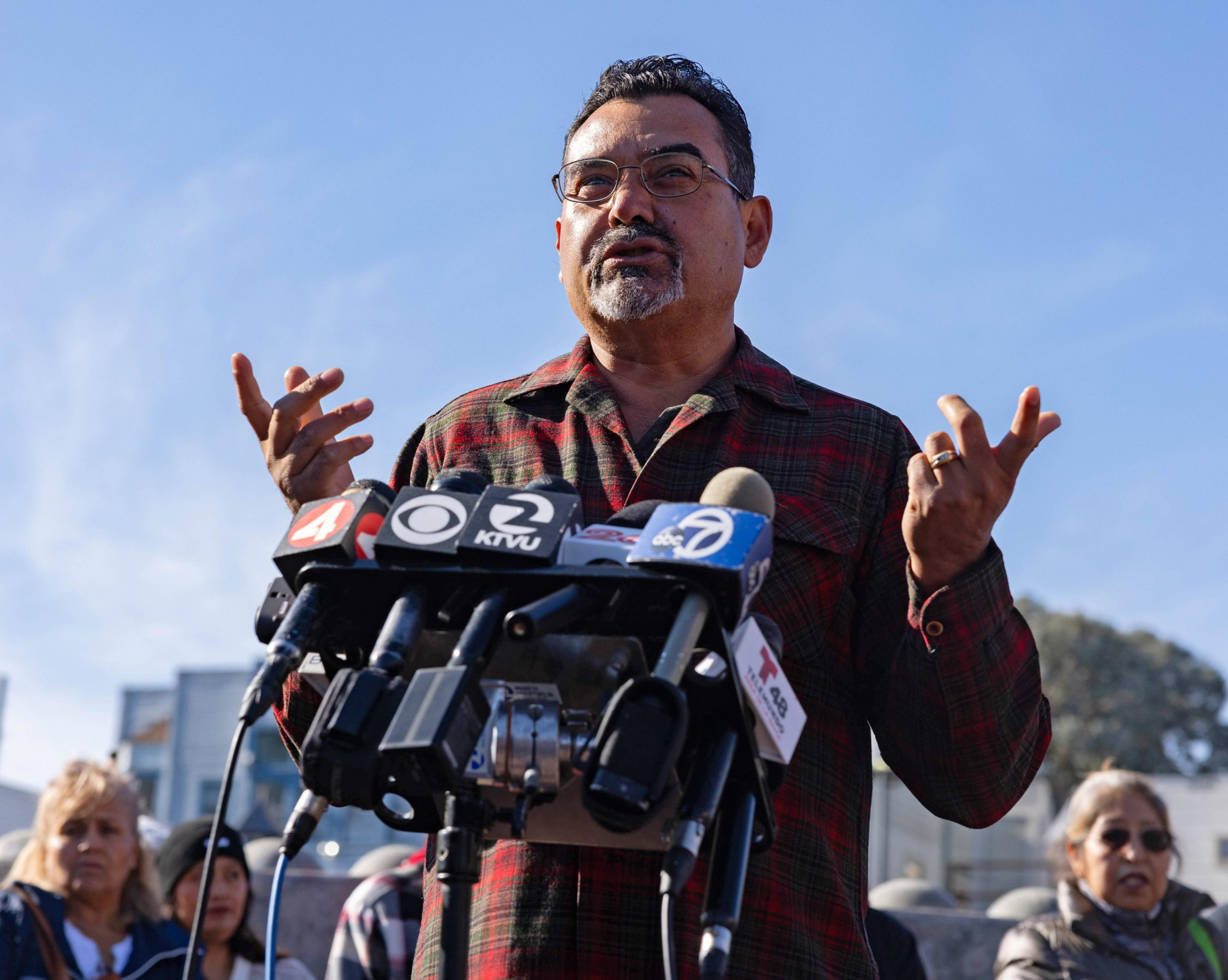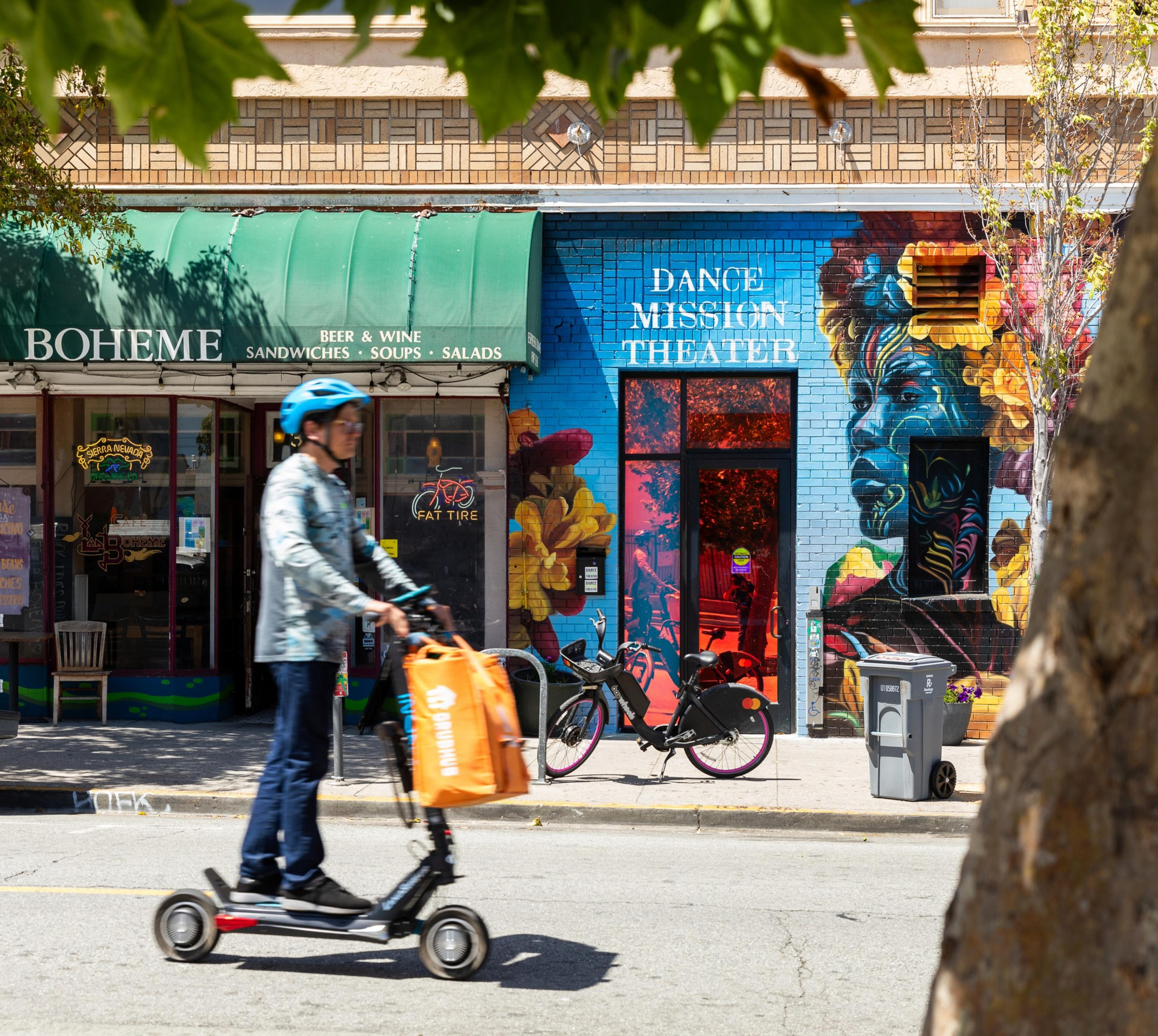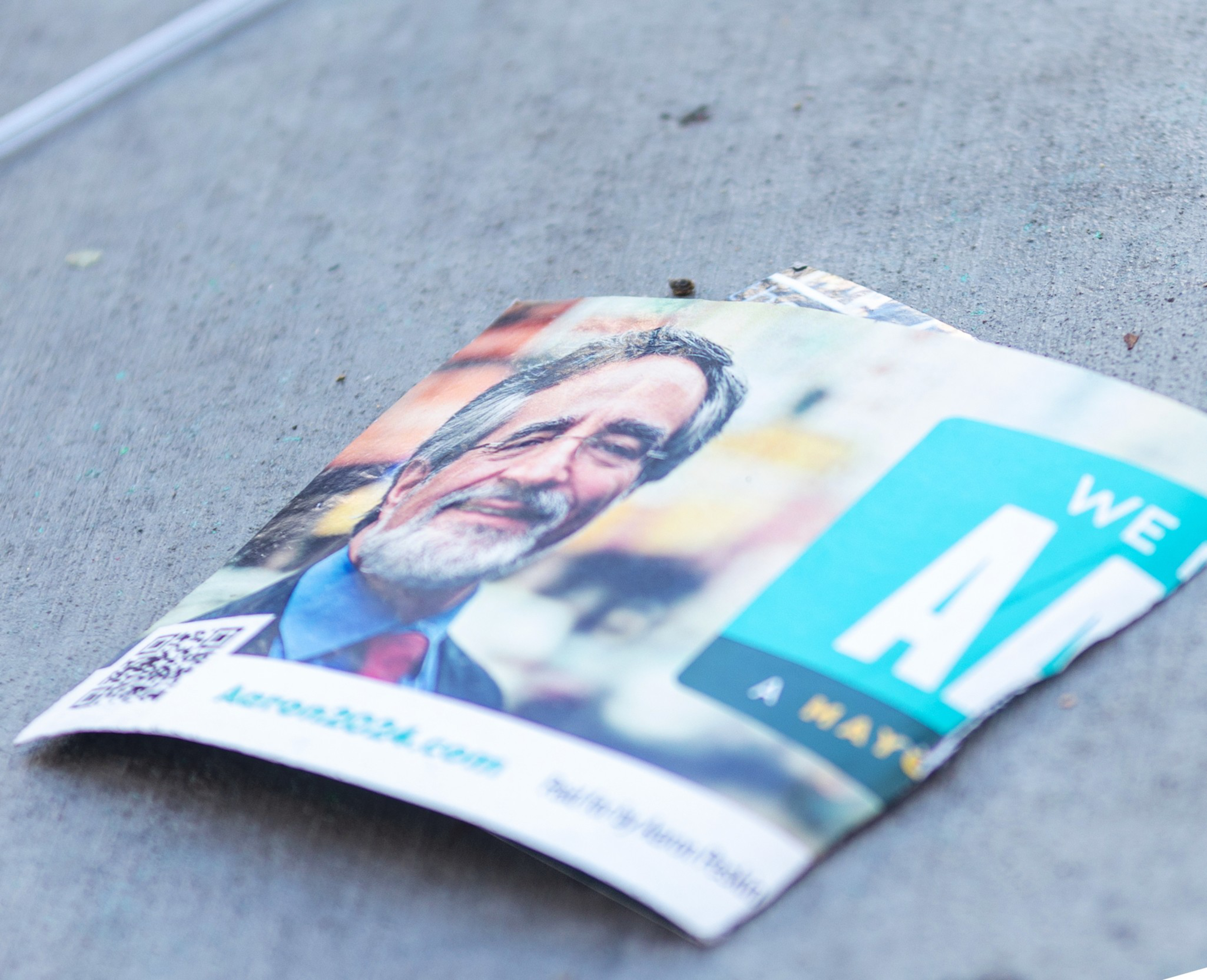Rodrigo Lopez can’t count how many times he’s seen people steal from street vendors in San Francisco’s Mission District. But late last year, it was his turn to get gaffled.
While walking near the 24th Street Bart Station plaza, a teenage girl swiped Lopez’s phone charger. He tried to get it back, he said, but the girl shot a mist of pepper spray into his eyes and made off with his property.
The feeling of helplessness grew worse, Lopez said, when he tried to file a police report. He recalled officers telling him his best option was to avoid the area or try to take steps to de-escalate the situation. He walked away from the encounter feeling that elected officials haven’t done enough to address issues around public safety in the Mission.
“To be honest, I feel like we are alone for the last two and a half years,” said Lopez, who serves as president of the Mission Street Vendors Association. “There is no communication, there is no relationship with the community.”

Concerns about crime are high in neighborhoods across San Francisco, and Mayor London Breed and her four reelection challengers are each touting public safety platforms. But many residents and business owners in the Mission say the candidates’ campaigns are ignoring their community, despite Latinos making up roughly 16% of city residents. The lack of outreach—especially compared to the overt effort to court Asian voters in the city—is troubling to many who feel their votes are seen as less valuable. But it could also be a missed opportunity.
In 2020, Latinos across the Bay Area voted at a rate 30% greater than in 2018, according to data compiled by Univision (opens in new tab). This figure was buoyed by voters aged 18-34, who have reportedly been turning out at a rate faster than any other demographic. But those numbers haven’t necessarily translated into a greater investment and voter outreach by mayoral campaigns.
Myrna Melgar, the sole Latina supervisor in San Francisco, who represents West Portal and other neighborhoods to the left of the Mission, said the lack of outreach has been disappointing but not surprising.

“Very few candidates are in touch; they kind of take us for granted,” Melgar said, noting the large role Latinos play in San Francisco’s vital hospitality and childcare industries. “It’s puzzling to me that candidates are running on a platform of getting back on the right track and not including the backbone of this community.”
In the first five months of this year, the crime rate in the Mission—which has the highest concentration of Latinos in the city, making up more than a third of residents—has actually fallen 8.7%, according to police data. But robberies are up nearly 17% through the first five months of 2024, and the feeling among many Latino residents contacted for this story—regardless of what the numbers say—is that the situation in the neighborhood is as bad as it’s been in years.
A consistent lack of engagement
Evan Sernoffsky, a spokesperson for the police department, noted that crime is down in every single category in San Francisco, although robberies are up in the Mission.
“Obviously, it comes as little consolation to someone who is victimized that crime is trending down,” Sernoffsky said. “But when we look at the initiatives we’ve put in place around organized retail theft, disrupting our drug markets, auto-burglary abatement—we have seen success this year.”
Phillip Collins, who moved from Mexico to the Mission in 1979, said the area has changed drastically over the years, from a loss of everyday vibrancy to a decay in public safety. But one constant, he added, is that the area has never been a priority for elected officials.
“My understanding is that the mayor is saying she wants another four years, but she ain’t doing nothing,” Collins said. “She made a promise to resolve the homeless and she’s not doing it.”
Amid calls for a crackdown on the fencing of stolen goods in the Mission, Breed is sponsoring new legislation from state Sen. Scott Wiener that intends to not only protect small business interests but also make for safer street conditions for vendors and pedestrians.

Joe Arellano, a spokesman for Breed’s campaign, said that the mayor is also “marshaling the resources” to help the city’s Latino community with affordable housing, education and childcare.
Roberto Barriga, a tattoo artist at Dermafilia on 21st Street, said crime has been a constant in the Mission, particularly at night, but he thinks the emphasis on police misses the larger issues around public safety.
“More money should be going to education for people for things like connecting people to jobs,” Barriga said, adding that he wouldn’t commit to any candidate for mayor until he sees more outreach. “If the root causes are addressed, the issues on the street—poverty and ignorance—will be fixed.”

Down the street from Dermafilia, Silvia Ferrusquia owns Latin Bridal, which sells and rents tiaras, tuxedos and quinceañera dresses. A sign in the window would suggest she is supporting mayoral candidate Ahsha Safaí, a supervisor who represents the Excelsior and other neighborhoods to the south of the city.
However, Ferrusquia said she hung the sign because his campaign was the only one to reach out.
Lila Carrillo, who works as a staffer for Safaí and volunteers on his campaign, said that engagement with the city’s Latino communities has always been paltry.
“I’m not about politics, I’m about civic engagement, and there’s no engagement of the Latino community when it comes to voting,” Carrillo said. “There’s nothing in between the voter registration drive and voting day. And then that creates this narrative that Latinos don’t vote—but that’s because we feel like you don’t care about us.”
Latino voters wonder if they’ll be ‘abandoned’
Mayoral candidates have to vie for votes citywide, but the issues important to many immigrant families—whether it be Asians or Latinos—can often align, according to Supervisors Melgar and Ronen.
However, while both Asian and Latino communities care deeply about public safety, there appears to be an imbalance in the outreach to these constituencies.
Campaign signs appear to be few and far between at storefronts in the Mission, standing in stark contrast to the city’s other culturally specific neighborhoods like the Castro, Chinatown and the Richmond, which are festooned with mayoral materials. Most of the candidates for mayor spoke in broad generalities about their outreach to Latinos in the Mission when contacted for this story.
Mark Farrell, a former supervisor who was briefly appointed mayor in 2018, said in a statement that his campaign has focused on a consistent message to voters “from all walks of life,” including the city’s diverse Latino communities. He added that Latinos “desperately want change” in the Mayor’s Office.

Aaron Peskin, a North Beach supervisor who is running for citywide office for the first time, has conducted merchant walks and meet-and-greets in the Mission, according to Kaitlyn Conway, a campaign staffer. She added that “outreach and communication to this community is a priority.”
Hillary Ronen, a terming-out supervisor who currently oversees the Mission, applauded Breed’s efforts on illegal fencing, but she said most of the mayor’s proposals offer short-term fixes. Ronen endorsed Peskin’s candidacy as a first-place option, saying he is best suited to address police staffing shortages and keep the city clean and safe.
Daniel Lurie, a nonprofit founder and Levi Strauss heir, intentionally established a campaign office in the Mission to work closer to Latino voters, said Max Szabo, a campaign spokesperson. How much that has translated to grassroots support is unknown. The Lurie campaign touted Lurie’s relationship with the Mission Asset Fund, a nonprofit funded in part by the Levi Strauss Foundation.
Lopez, president of the Mission Street Vendors Association, said that Breed and Wiener’s legislation cracking down on illegal fencing is encouraging for the community and a step toward creating a better relationship between the Mission, City Hall and police.
“For the vendors, it’s a big step,” Lopez said. “We know there’s going to be a lot of work to do in the future, but we feel this is a lot of progress. With these tools, the city can start working with the police to attack fencing.”

Ferrusquia said that she’s been satisfied with the mayor on street vending, as the once-crowded sidewalk in front of her business was deterring customers. But even this progress might not be enough to secure the vote of her and others in the Mission.
“I see the streets are cleaner than before and the police are more present and they’re not abusing people,” Ferrusquia said. “But the politicians need to reassure us that we’re not going to get abandoned.”
This story has been updated with the correct spelling of Lila Carrillo’s name.
